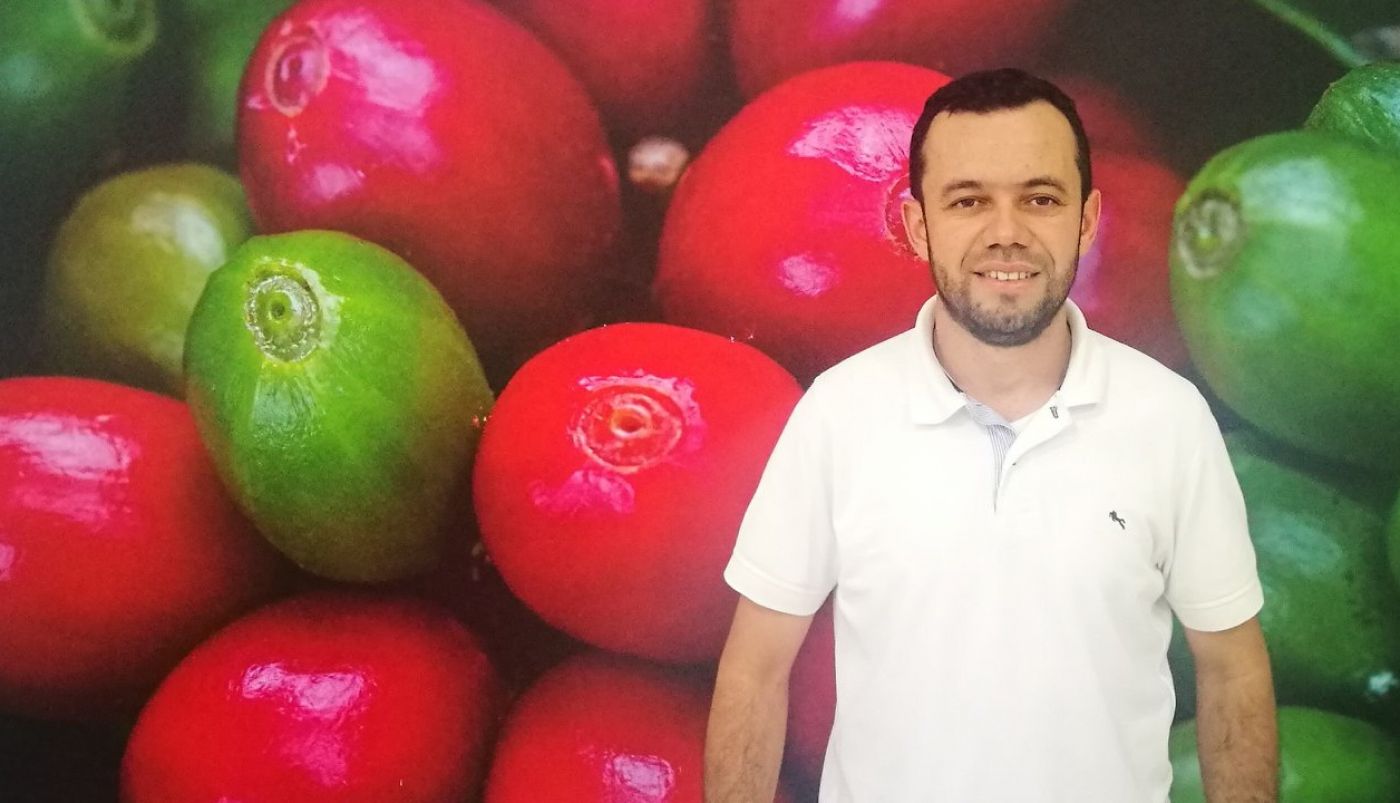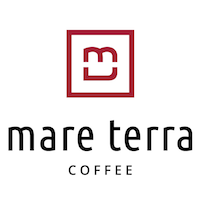
Emilio Monje, Head of Quality Control, Coocentral
Emilio Fernando Monje leads quality control at Coocentral Cooperative of Huila, Colombia. In March, he visited the central office of Mare Terra Coffee in Barcelona and then flew with our team to Moscow to participate at Russian Coffee & Tea Expo.
Emilio told us about changes in Coocentral and about the Young Huila Farmers project.
Emilio, Coocentral is a cooperative which includes more than 4000 farms in Huila. How do you organize the quality control in such a huge organization?
Yes, there are about 4000 farmers from 7 municipalities of Huila which belong to our Cooperative. We have 4 quality control laboratories in strategic cities of the region, each laboratory has a team of professional cuppers. By the way, soon we will open 3 more labs.
Each producer can bring green beans to one of these labs for analysis and evaluation. On average, about half of producers present samples of some of their lots.
There is a queue of samples forming in laboratories. We identify each lot, roast it and evaluate its sensory profile.
How do you evaluate a sensory profile?
We focus on assessing the potential of coffee. Due to time constraints, we are forced to move away from some stages of the SCA protocol. So, for example, we cannot wait 8 hours after roasting the coffee to cup it, and we do it within an hour after roasting.
What happens to the coffee next?
We determine the price of the lots and the potential customer based on the results of the assessment. Also, farmers receive additional compensation if they participate in one of the strategic programs of the cooperative. For example, “Women in Coffee” or “The Young Farmers of Huila”.
And what happens with coffee that is not presented to the labs?
We sell it as a commercial product, at an exchange cost.
Emilio, let's talk about The Young Farmers of Huila project. For Mare Terra Coffee, it is an opportunity to participate directly in coffee production and to conduct experiments with people, with farmers, whom we trust and who, we are sure, trust us. What does this project give to the cooperative?
Primarily, it is a system that allows us to get new knowledge and share it with others. For example, when we launched the project, we radically changed the quality control process. We have introduced new criteria for coffee evaluation and it gives us an opportunity to work in line with the trends of the specialty coffee market. In addition, this project inspires and satisfies the ambitions of our young farmers. They create new products, they break stereotypes and the result of their experiments is not just in demand but also loved by the consumer! That’s how they learn to value their product and evaluate it correctly.
Do they receive special education?
Well, firstly, last year Mare Terra Coffee organized an educational module and some of the young producers passed it together with cuppers of the quality labs. Since then, Coocentral regularly organizes master-classes on cupping protocols, sensory analysis, and other topics.
And then, somehow farmers took the initiative and started to organize some of the master classes by themselves. They constructed a roaster to have an opportunity to roast and cup at farms. They gather at farms, hold cupping sessions, share the experience with each other and discuss the results of their experiments. Right now, while we are talking, Herston Bernal is holding a cupping session at his farm (March 15, 2019 - author's note).
Moreover, these master classes are open not only to participants of the program but fto their friends and other farmers. By the way, that's how a few new producers joined the program.
How did this project start? You have said there were 2 producers…
There were 4 producers: William Parra (he is 22 years old! - author’s note), Helder Contreras and his brother Andrés Contreras, and Herson Bernal. They are the most active participants of the project and they were the first farmers who passed the educational module of Mare Terra Coffee and started to make experiments. Then, Coocentral chose young farmers already known for producing a stable, high-quality coffee from year to year. We presented them the project, the new evaluation system and suggested joining it. Now there are 10 farmers participating in the program.
And what exactly has changed in the coffee assessment?
We do not focus only on soft washed Colombian coffee. Our cuppers are trained to detect and evaluate correctly unusual exotic profiles of Colombia: natural, long fermented, strong, bright…
If such coffee lot is presented by a producer who does not form a part of the program “The Young Farmers of Huila”, what happens to this coffee?
We evaluate it in our labs, and then we send a sample to Mare Terra Coffee. For example, this is how Alcides Alvaro´s and Pedro Chantre's coffees came to you (lots 87+ with huge potential -- author's note).
What results do you expect from the project?
I think that our cooperative, our region, and Colombia will be able to supply more diverse and interesting coffee, more specialty coffee, provide a new profile.
During this trip, you have tried a lot of coffee from different origins. Are you going to take some samples to Colombia?
Of course! I will organize a big cupping session. Besides, I am taking grains with me to plant and adapt different varieties to our land.
What are your main impressions of the trip to Spain and to Russia?
I have a lot of impressions! The most interesting part was participating in quality control on the side of a coffee importer, in the country of consumption. The process is very different from ours. You get coffee from different origins, this coffee has already passed several filters, you can concentrate and evaluate quality at different stages, devote more attention to each coffee, evaluate water activity, etc. - I see a completely different dynamic.
And in terms of consumption trends, what did you notice?
First, if we talk about Russia, I’m surprised that the industry is moving by such young guys. I think it sets the tone somehow. it seems they are really interested in unusual different coffees. I like the fact that the community is open and they are willing to share information and knowledge.
This is a big engine for the industry. Let's say I could implement in Latin America what I have learned about coffee production in Africa, you could implement in your coffee shop in Thailand what you have learned from Russian coffee shops etc. For us is also very important to receive feedback.
Your trip is a good way of getting feedback. Would you repeat it with your colleagues and farmers?
This is a very expensive tool! Of course, this is very very useful, but most farmers cannot afford it. But we are always open and happy when the roasters, cuppers, and baristas visiting our Cooperative in Colombia. This is also a great way to share knowledge.

